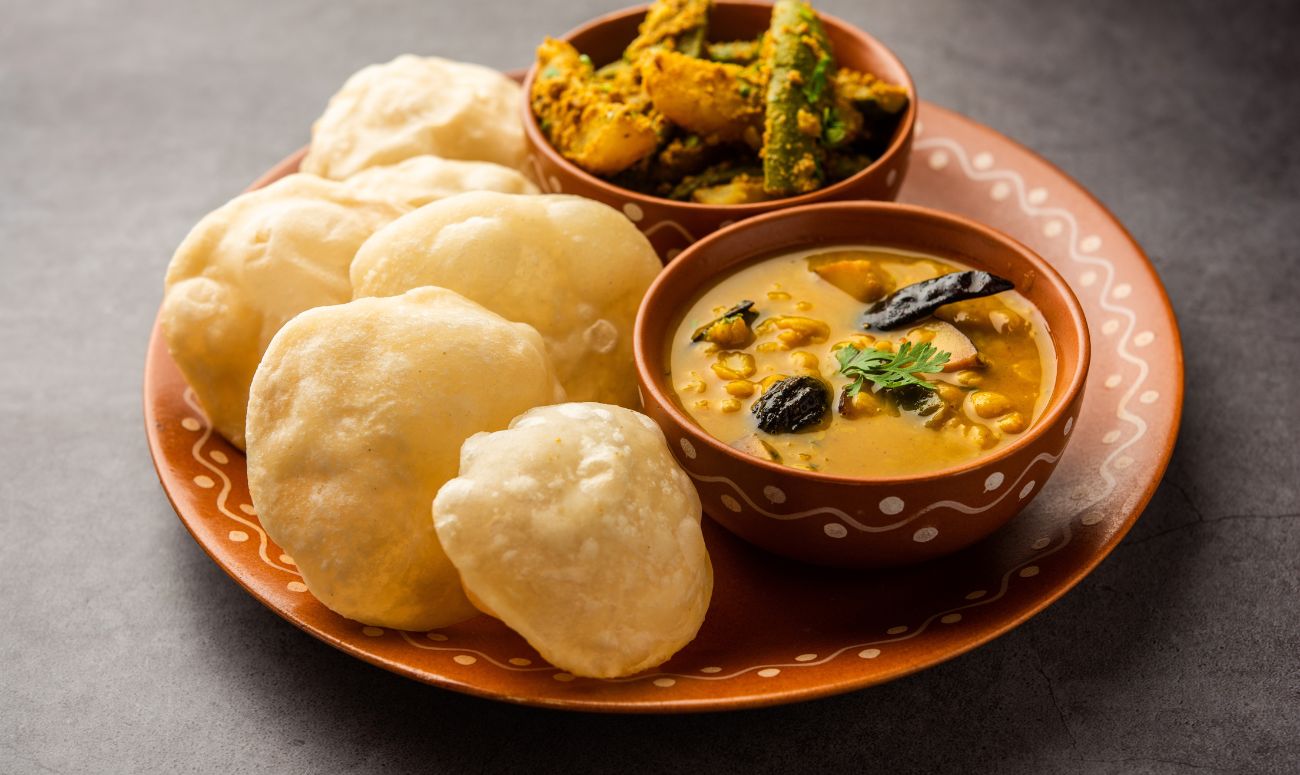Ancient Ayurvedic texts mention about the usage of mustard oil for cleansing, stimulating and revitalizing the body. It is believed that mustard was grown in the Indian subcontinent around 3000 B.C.E. It was introduced to India from China and later spread to other Asian countries. India, China and Pakistan grow about 90% of the world production of mustard. Today, it reigns supreme in Bengali food, let us decipher why and how?

The Bengal Connection
Mustard is an important part of Indian culture. The yellow flowers of the mustard plant symbolize the arrival of spring. Mustard grows in abundance in the Northern States of India. The Ganges that flows into Bengal brings with it the rich soil from the North. This combined with the mild climate and fertile plains of Bengal and Eastern states makes it conducive for mustard to grow here as well.
Many decades ago, Bengal was occupied by various sects, with each one having their own traditions, customs and cuisines. Kasundi or mustard paste, also known as the Queen of pickles was as essential part of the royal meals of Zamindars and Raj Badis. It was considered a prized possession and only women from the upper caste were allowed to prepare it at home. Over the years with change in societal norms, kasundi preparation became a part of common households and has now become an inseparable part of Bengali kitchens.
An Indispensable Part Of Bengali Food
Mustard oil is a favourite in the State of West Bengal because of its sharp and pungent flavour. It adds horseradish like kick to vegetables and curries, which goes well with rice, a staple food of Bengalis.

Mustard oil is widely used in cooking in Bengali food. Every dish starts with a splash of mustard oil, which is heated to smoking point to tone down its pungency. It has a high smoke point and absorbs flavours well making it ideal for cooking and deep frying. The flavour profile of mustard dissipates fast and does not give an after taste. Therefore, Bengalis prefer using it in cooking to enhance the flavour of the dish.
Mustard oil is also used as a preservative for pickles because of its anti-microbial properties.
It is rich in Omega-3 and Omega-6 fatty acids that help lowering the risk of heart diseases.
Significance Behind The Pungent Flavour
There are around 40 different varieties of mustard plants, but only 3 of them are used for edible purposes. Black, brown and white mustard seeds are used for extraction of oil as they contain 30% of oil. Traditionally, oil was extracted from mustard seeds by a process called ‘Ghani’, wherein a grinding mill was pulled by a bull for long hours. This has now been replaced by a cold-press process called ‘Kachi Ghani’, where mustard seeds are crushed at low temperature to retain the natural properties of the oil.
The pungent flavour of mustard is due to the presence of a phytochemical, allyl isothiocyanate. It is a sulfur compound that is extremely volatile and fat soluble. As a result, it causes a burning sensation even when sniffing mustard oil. The pungent aroma is so strong that you can smell mustard oil even before seeing it.
Dr. Deepali Kampani is a digital content specialist who weaves health and food through her pen.
Read More: Which Is The Best Type Of Meditation To Achieve Enlightenment?
Like & Follow ThinkRight.me on Facebook, Instagram, Twitter, Pinterest and Telegram to stay connected.






























